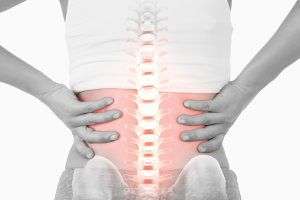A 30-year-old mom bends over to pick up her four-year-old and feels a sharp stabbing pain in her lower back. A 60-year-old man bends over to pick up his five-year-old grandchild and feels an electrical shooting pain in his lower back. For both, the pain is so severe they need to sit down. The next
Read more
Vertebral subluxation refers to a set of signs and symptoms that affect the spinal column. Specifically, it is a complex that occurs when the bones of the spine lose their usual position and motion due to chemical imbalances, alcohol, prolonged sitting, trauma or even stress. An automobile accident and improper lifting are just two types of trauma that can cause vertebral subluxation complex, or VSC.
How Does Vertebral Subluxation Complex Affect the Body?
The term “complex” is associated with vertebral subluxation because, as the word suggests, the condition is multifaceted and consists of many elements. This is because VSC is the underlying cause of health care problems. When one or more vertebrae are misplaced or fail to carry out their intended motion, they can disrupt the function of the nervous system. The vertebral bones are designed to contain and guard this system, so interference can lead to pressure on the spinal cord or the nerve roots as they pass out of the spinal column. When VSC presents, a number of things can happen to affect the spine, its related soft tissues, and even the tissues and organs controlled by the affected nerves.
Vertebral Subluxation Complex and Its Five Interrelated Parts
VSC typically has — and is — identified by five major interconnected components, including:
- Spinal kinesiopathology. This component sounds much like vertebral subluxation itself. Here, the bones of the spine have lost their natural motion and position, making it difficult for the patient to turn and bend. It sets the other four components in motion.
- Myopathology. When the muscles sustaining the spine weaken, atrophy or become stiff, they can go into spasm. This can result in scar tissue that changes the muscle tone.
- Neuropathophysiology. If the spine functions improperly, it can obstruct, stretch or agitate nerve tissue. Nerve tissue is delicate. Irritation in these ways can cause nerve system dysfunction and lead to aggravating symptoms elsewhere in the body.
- Histopathology. A patient’s body temperature can rise due to an increase in blood and lymph supplies. This, in turn, can lead to inflammation and swelling, which can then cause discs to protrude, tear, herniate or deteriorate.
- Pathophysiology. This is when abnormal bony growths like bone spurs try to meld faulty spinal joints, leading to decay of the spine, scar tissue and nerve dysfunction.
The articles within this section discuss each of the five components further.
How Chiropractic Treatments Can Help
Your chiropractor will not only detect and minimize VSC, but, once the spinal bones are back in their normal position and have regained their natural function, he or she will try to prevent the problem from recurring. Chiropractic treatments, particularly spinal adjustments, can be used to treat VSC and ward off its associated symptoms.
To find out how chiropractic treatments can be designed to address your particular VSC-related condition, contact your practitioner.
-
Back Pain and Herniated Discs
Category: Newsletter Library, Back, Body & Joint Pain
-
Backpacks and Back Pain
Category: Newsletter Library, Back, Body & Joint Pain
Backpacks are the tote of choice for most school-aged children with two books per class to lug around. In fact, it is reported that between 92% and 94% of schoolchildren carry backpacks. And it appears these contraptions are evolving somewhat with sturdier-looking designs, heavily padded straps and about
Read more -
Dealing with Arthritis
Category: Newsletter Library, Back, Body & Joint Pain
We've all seen the TV ads ─ nice-looking woman in her fifties, sitting on a nice sofa in a nice living room, rubbing her hands, in obvious pain. Of course, she's not Lady Macbeth, trying to rub off the imagined blood of her murdered husband. She's a woman with arthritis. According to the Center for
Read more -
Do I Have Carpal Tunnel Syndrome?
Category: Newsletter Library, Back, Body & Joint Pain
Many people believe they have carpal tunnel syndrome (CTS). The majority have been told by their medical doctor that they have CTS. Others have mistakenly concluded that because they have some numbness and tingling in their wrist or hand, they must have this neurological disorder. Still others have ongoing
Read more -
Effective Diagnosis and Treatment of Low Back Pain
Category: Newsletter Library, Back, Body & Joint Pain
Here's an all-too-common situation. You develop low back pain that lasts for more than a few days and you're uncomfortable enough to go see your primary care physician. He or she tells you it's not clear what's going on and sends you for a magnetic resonance imaging (MRI) study of your lumbar spine.
Read more -
Healthy Hips and Healthy Knees
Category: Newsletter Library, Back, Body & Joint Pain
The numbers of individuals undergoing total hip replacement and total knee replacement are increasing significantly.1 Annual rates in the United States for total hip replacement have increased more than 50%. In Denmark, rates have been increasing by 30%. Annual rates in the United States for total knee
Read more -
Is My Pain Serious?
Category: Newsletter Library, Back, Body & Joint Pain
How do you know whether your pain needs to be evaluated by your chiropractor? This is the age-old question. The answer needs to be specific to your particular problem, rather than a one-size-fits all solution. But there are good guidelines that everyone can follow. First, is your pain deep and boring
Read more -
Lines of Force
Category: Newsletter Library, Back, Body & Joint Pain
Most chronic joint-related problems involving the hip, knee, and ankle1,2 can be successfully managed with conservative treatment. Surgery for such conditions is typically a last resort and frequently does not work out well. Revision (repeat) procedures are common and represent a failure of appropriate
Read more -
Replacement Parts: What You Need to Know
Category: Newsletter Library, Back, Body & Joint Pain
If you've ever been involved in a motor vehicle collision, you're probably familiar with the term "replacement parts" or "crash parts". Your auto insurance company will usually offer to repair your car using after-market bumpers, door panels, wheel assemblies, and other parts. Or, you may prefer to have
Read more -
Suffer from Neck Pain?
Category: Newsletter Library, Back, Body & Joint Pain
Do you suffer from neck pain? If you do, you're not alone. Nearly 75 percent of American adults will suffer from neck pain at some point in their lives. And, looking at our anatomy, it's no wonder so many of us do. Though having your head perched on top of your spine gives you a great view of your environment,
Read more -
The Best Treatment for Trigger Points
Category: Newsletter Library, Back, Body & Joint Pain
Trigger points are painful nodules in muscular tissue, commonly found in the upper back, low back, and gluteal muscles. Trigger points are frequently chronic, persisting from day to day without much relief. When someone says, “My muscles are all in knots”, those knots are most likely trigger points. The
Read more -
The Problem of Radiating Pain
Category: Newsletter Library, Back, Body & Joint Pain
Many people experience radiating pain as a component of neck pain or low back pain. A person with neck pain might have pain that radiates down her arm, possibly into the hand.1 A person with low back pain might have accompanying leg pain, possibly traveling into the foot. Such arm/hand pain or leg/foot
Read more -
What Should I Do About My Pain?
Category: Newsletter Library, Back, Body & Joint Pain
No one really wants to be a worrier. We certainly don't want to visit our chiropractor or family doctor for every ache and pain. But eventually we all experience physical problems and it may be difficult to know what to do about them. Some problems are immediate and serious. If you suddenly experience
Read more -
What Should I Do for a Herniated Disc?
Category: Newsletter Library, Back, Body & Joint Pain
Herniated discs in the lumbar spine are fairly common and having one doesn’t sentence you to a lifetime of back problems. In fact, at least one-third of people over age 30 are found to have one or more herniated discs in the lower back when a magnetic resonance imaging study (MRI) is done for reasons
Read more -
What's Wrong with My Back?
Category: Newsletter Library, Back, Body & Joint Pain
Not all back problems are created equal. One person may have been working on a home improvement project and injured her back while simultaneously bending and twisting. Another person may have developed back pain as a result of a vehicular collision. Another person may be experiencing back pain as a result
Read more -
When Is Back Pain More Than Back Pain?
Category: Newsletter Library, Back, Body & Joint Pain
Out of the blue, your back starts to hurt. At first, it's just an annoyance. You can live with it. You've had lower back pain before and it went away on its own. Now it's a few weeks later. You've got a low-grade pain that's not getting any better. You're actually worse, in fact, because your back
Read more
Contact Us Today
We look forward to hearing from you
Locations
Find us on the map
Office Hours
Our Regular Schedule
Primary
Monday:
7:30AM- NOON
2:00PM- 6:00PM
Tuesday:
7:30AM- NOON
2:00PM- 6:00PM
Wednesday:
7:30AM- NOON
2:00PM- 6:00PM
Thursday:
7:30AM- NOON
2:00PM- 6:00PM
Friday:
7:30AM- NOON
Saturday:
Closed
Sunday:
Closed
